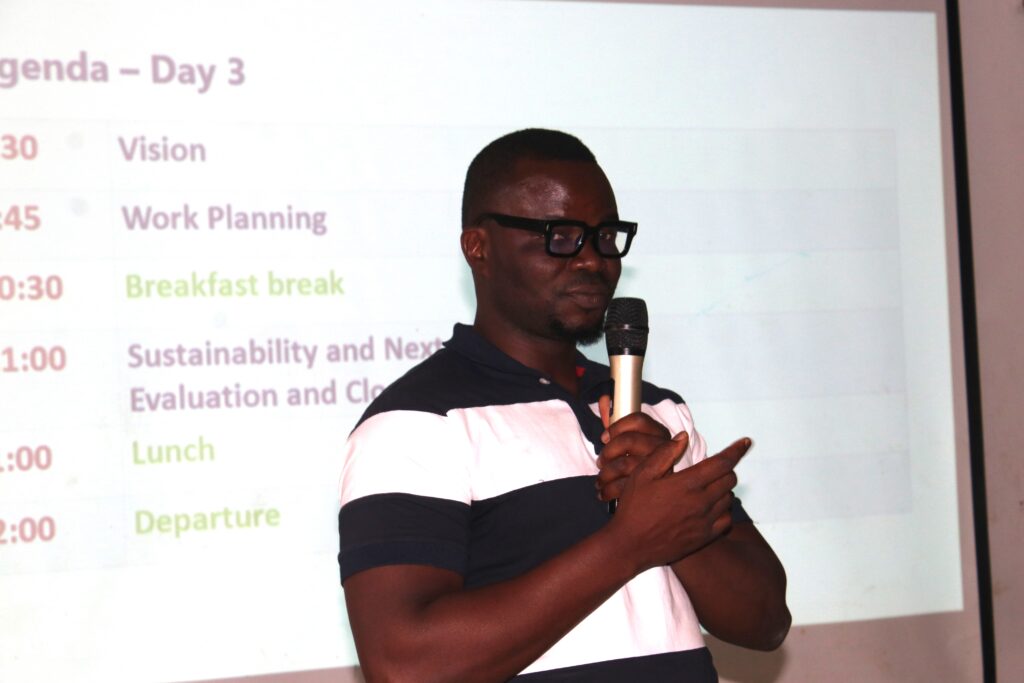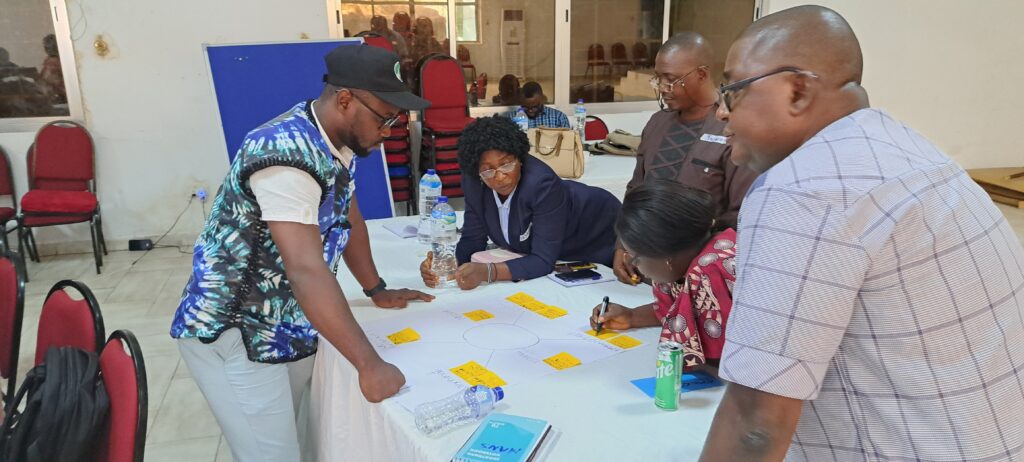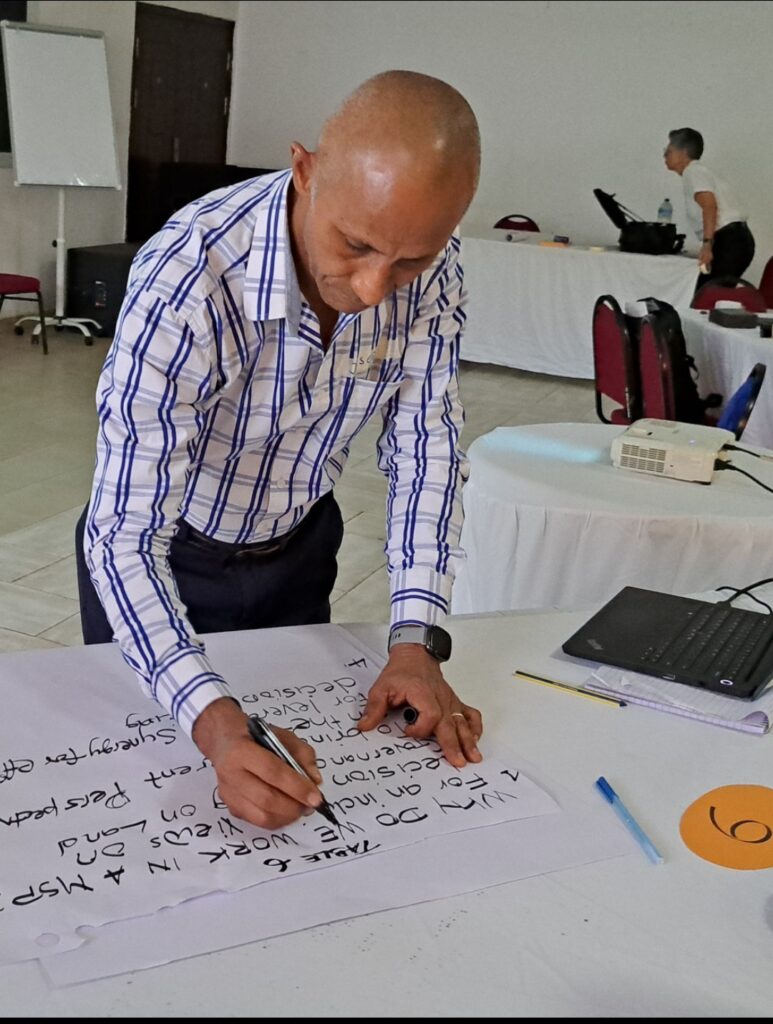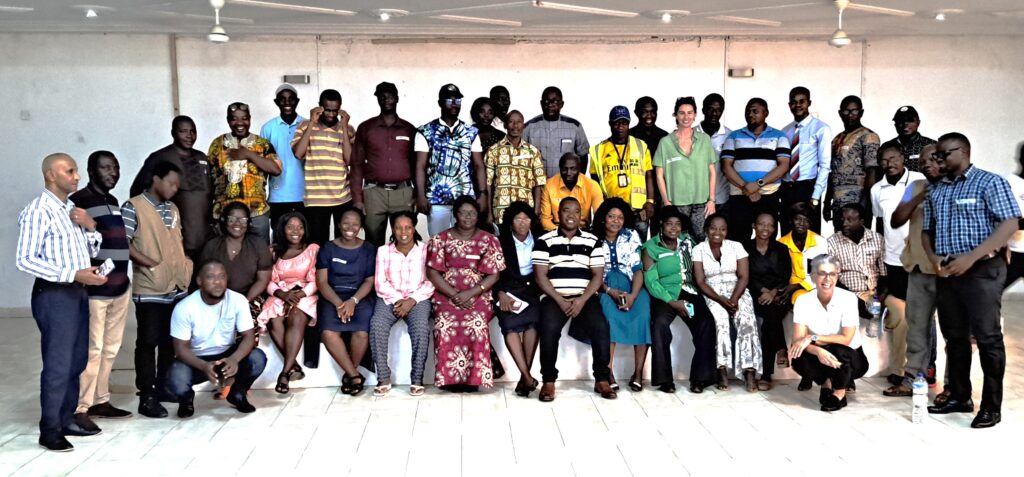DISTRICT MULTI-STAKEHOLDER PLATFORM MEMBERS MET TO CREATE A NEW VISION AND SET NEW PRIORITIES
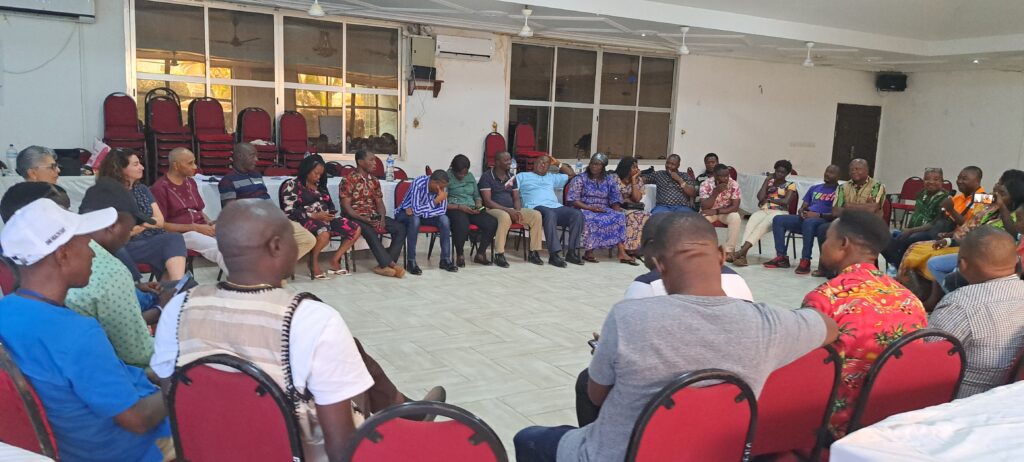
It was generally regarded as a time of learning and advancement for the different District Multi-stakeholder Platforms (DMSP) as they assembled in Makeni City, Northern Region, for a three-day Technical Workshop funded by UN-FAO that started on the 5th of March onto 7th, of March 2024.
The workshop had a strong representation from six District Multi-Stakeholder Platforms (Pujehun, Kenema, Kambia, Tonkolili, Port Loko, and Bombali). Even though the Kambia DMPS had only recently been set up, every member of the various DMSPs was eager to learn how a DMSP should operate in order to effect necessary changes in their areas of operation.
Francesca Romano, UN-FAO Tenure Security Officer, welcomed the DMSP members to the three-day session, stating that UN-FAO has been supporting Tenure security processes in Sierra Leone for more than a decade. Francesca further stated that UN-FAO significantly supported the processes that resulted in the passage of the Customary Land Rights and Land Commission Act of 2022. She stated that the UN-FAO team will continue to help Sierra Leone’s land reform activities, particularly through collaboration with the government, CSOs and other established structures in the country.
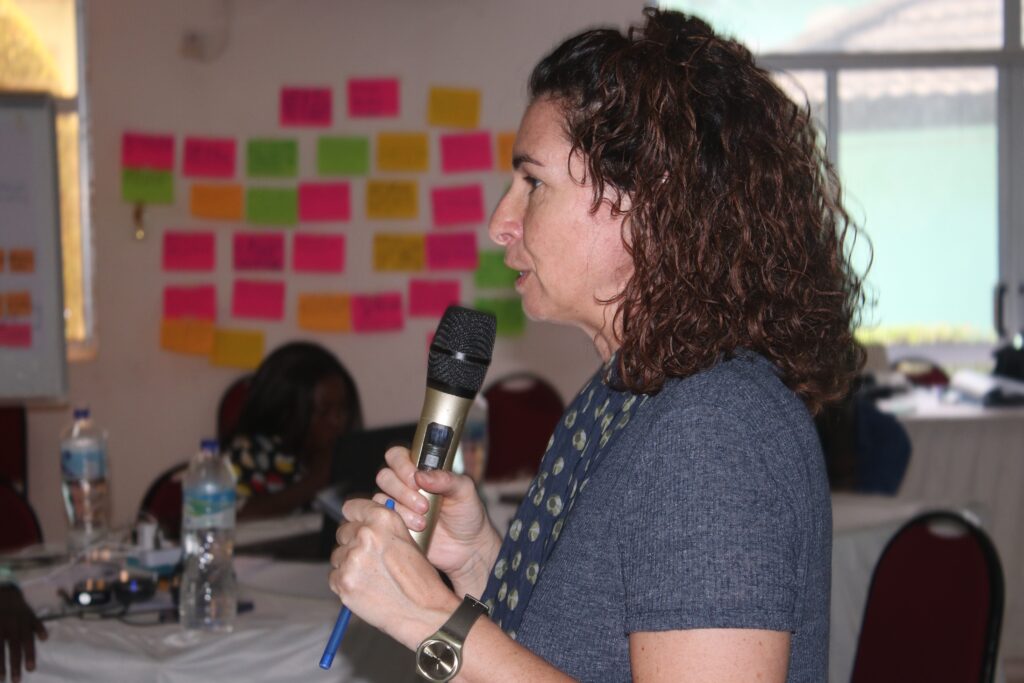
With a variety of practical activities and presentations, the DMSP members were able to learn not only about the dynamics of building an MSP but also about the growth of Sierra Leone’s land governance framework. The DMSP’s role in enabling community consultations that resulted in the passage of the Customary Land Rights and National Land Commission Acts is still vivid in the minds of those institutions/organizations involved.
Identifying important stakeholders to collaborate with seems to be difficult for each of the DMSPs. The facilitators were able to assist each MSP in utilising the Influence & Interest Grid to map out who they wanted to invite into the DMSP and what influence and interest the stakeholder had. Berns Komba Lebbie, National Coordinator for Land for Land for Life-Sierra Leone, and Joseph Rahall of Green Scenery both acknowledged that one of the DMSP’s challenges has been stakeholder inclusion. Berns used Kenema District as an example, where the DMSP has struggled to gain the attention of major government ministries, departments, and agencies in order to fully engage in the DMSP. The stakeholder mapping grid helped DMSP members identify stakeholders that needed. The stakeholder mapping grid assisted DMSP members in identifying stakeholders who needed to be brought on board as well as those who did not need to be involved but should be kept aware of the process and activities.
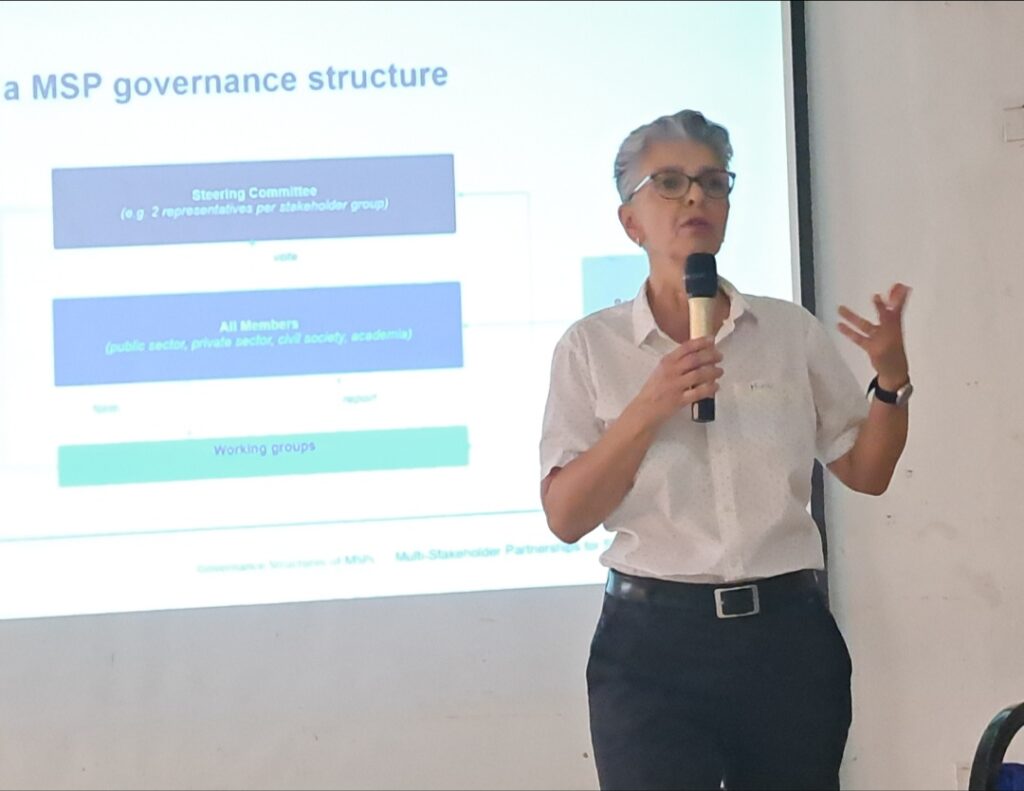
At the end of the workshop, each DMSP was able to draft a work plan that would guide their intervention in their respective districts. Though this could the first meeting some DMSP members have ever participated in as indicated during the workshop evaluation, the spirit to do more has been lit
